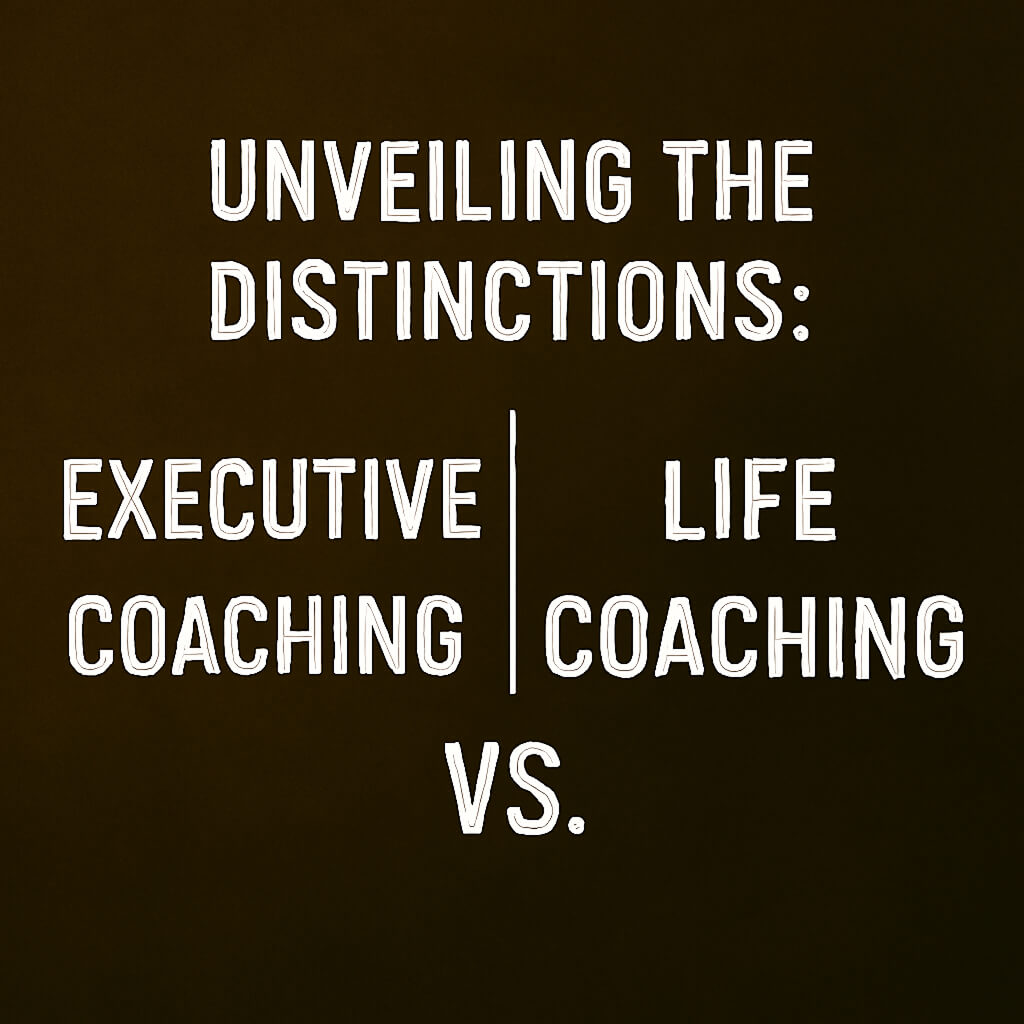I often get asked: “Catherine, what’s the difference between Life Coaching and Executive Coaching?”
It’s a question worth unpacking, because the distinction can be the difference between mere reflection and true transformation.
Life Coaching vs. Executive Coaching: More Than Semantics
◀️ Life Coaching focuses primarily on asking questions that prompt self-reflection. It helps people navigate personal goals or life transitions.
▶️ Executive Coaching is far more than questions. It combines:
- Proven coaching skills & methodologies
- Deep corporate expertise
- Hands-on leadership experience (rooted in practice, not theory)
- Knowledge of organizational psychology
- Insights into human behavior
- Neuroscience-based research
- Philosophical and ethical perspectives
In short, Executive Coaching is designed to develop leaders in their full professional, personal, and organizational context, not just in their personal lives.
1️⃣ Focus: Holistic Leadership Development
Executive Coaching addresses three interconnected areas:
♥ Personal Development – This goes beyond reflection. It’s about uncovering blind spots, breaking personal barriers, and recognizing unconscious biases. Even seasoned CEOs often underestimate these. For example, I’ve guided leaders who were convinced they were “beyond coaching.” Yet, within a single session, we uncovered blind spots that, if left unaddressed, could have negatively impacted business performance, culture, and high-potential talent retention.
Personal development also includes mental, emotional, social, spiritual, and physical well-being. Leadership is demanding, and without attention to these dimensions, even the most capable leaders falter.
♥ Professional Development – Enhancing strategic thinking, organizational development, executive communication, stakeholder management, innovation, and execution. It’s about ensuring executives don’t just survive in their role; they thrive and elevate their teams.
♥ Leadership Development – Leadership is multi-layered:
- Self-leadership – Leading yourself effectively
- One-on-One Leadership – Developing high-quality, impactful relationships with direct reports
- Team Leadership – Driving collective performance with diverse groups
- Organizational Leadership – Shaping culture, vision, and organizational effectiveness
Even the most experienced CEOs benefit from systematic coaching at each of these levels. Transformation rarely comes from insight alone—it comes from guided, intentional development.
2️⃣ Expertise Matters
Executive Coaching demands more than intuition; it requires deep expertise:
- Corporate dynamics and leadership principles
- Real-world leadership experience
- Organizational and human psychology
- Neuroscience and behavioral insights
I recall coaching a CEO who had built a billion-dollar business. On the surface, everything looked flawless. Yet during our sessions, I noticed subtle patterns in how decisions were made, small blind spots that were creating friction in leadership alignment and slowing organizational agility. Addressing them transformed not just his performance, but the entire executive team’s impact.
3️⃣ Outcome Orientation: Transformation Beyond Metrics
💎 Executive Coaching isn’t about checklists or KPIs alone. It’s about holistic transformation:
- Turning effective leaders into exceptional leaders
- Helping them make intentional, high-impact decisions
- Inspiring teams and driving culture
- Achieving extraordinary results in both personal and professional spheres
It’s rare. And it’s why leaders often describe Executive Coaching as “life-changing,” even if they entered the process skeptical.
4️⃣ Executive Coaching ≠ Consultant | Mentor | Life Coach
- Consultants provide solutions; they cannot transform leaders from within.
- Mentors / Advisors share experience; they cannot systematically develop leadership capacities.
- Life Coaches guide personal goals; they cannot address leadership within corporate complexity.
Even the most credentialed coach cannot achieve executive transformation without corporate experience, leadership insight, and a deep understanding of human behavior.
The Real-World Impact
Consider this: I once worked with a CEO of a 15,000-person company. On paper, he was doing everything right. Yet, subtle blind spots were causing disengagement at senior leadership levels. Through coaching, he discovered new self-awareness, adjusted his approach, and within months, team engagement scores and business results dramatically improved. That’s Executive Coaching in action: spontaneous insights, deeply contextual guidance, and measurable transformation.
5️⃣ Guidance for Organizations
Organizations must engage the right type of coach. Misaligned coaching wastes resources and risks leadership underdevelopment.
Executive Coaches bring a rare combination of skill, insight, experience, and holistic perspective that transforms leaders, not just their outputs, but their influence, judgment, and impact.
When your executives are fully developed, your organization doesn’t just perform; it thrives, even under pressure, uncertainty, and complexity.
Executive Coaching is not a luxury. It’s a necessity for leaders who aim to leave a legacy, not just a ledger.

